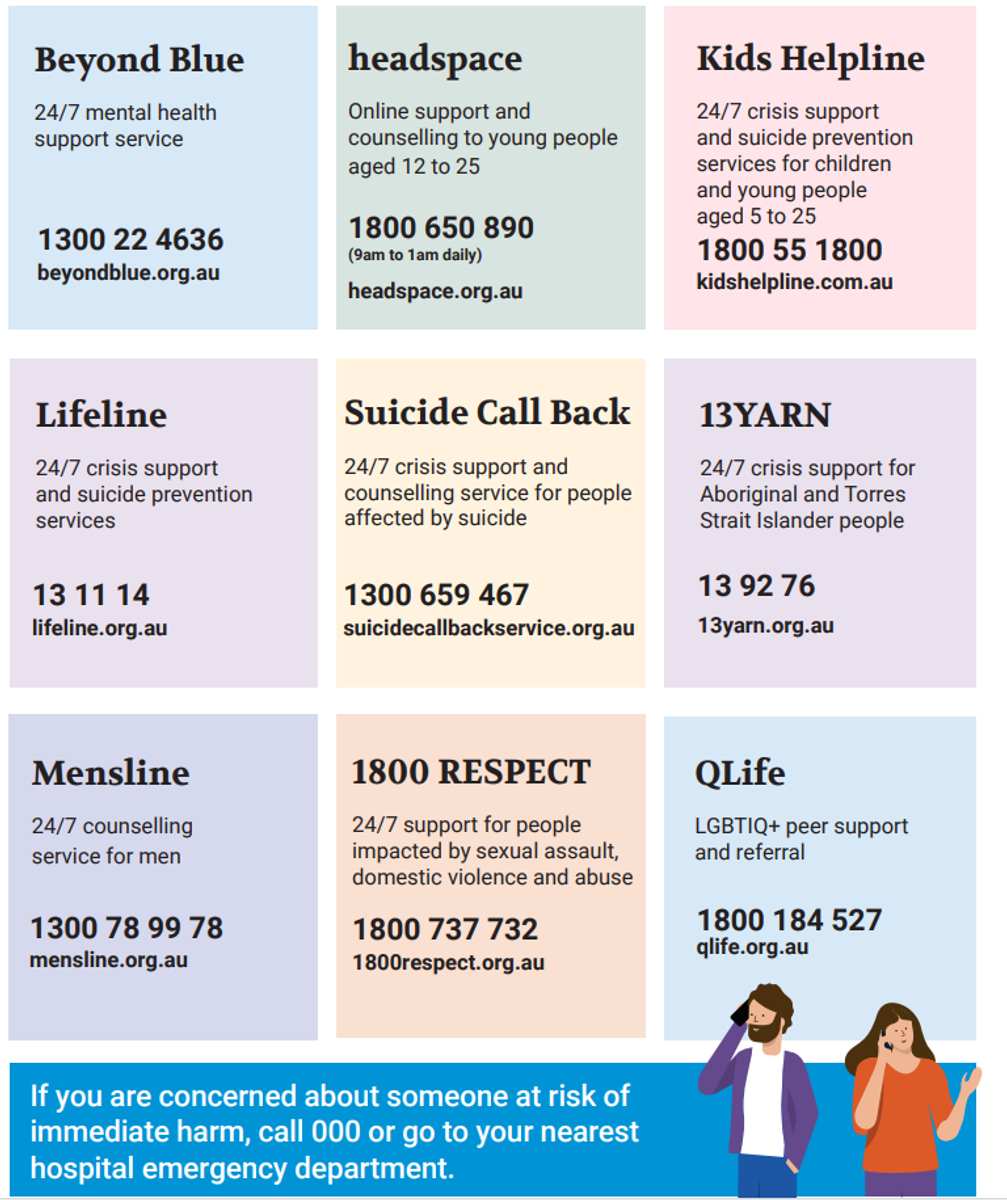Wellbeing
Jackie Landy - Wellbeing Coordinator

Wellbeing
Jackie Landy - Wellbeing Coordinator


Adolescence is a time of change, and it’s natural for both students and parents to wonder when challenging behaviour is just part of growing up – and when it might be a sign of something more serious. Understanding the difference between typical teenage behaviour and potential mental health concerns is key to getting the right help at the right time.
Here are some helpful tips for both students and parents:
It’s normal for teens to experience mood swings, stress, and occasional conflict with family and friends. However, if feelings of sadness or anxiety last for weeks or begin to interfere with everyday activities like school, friendships, or family life, it could indicate a mental health concern. It's important to recognise when something goes beyond typical teenage behaviour and may need professional attention.
While teens may often seek more independence or act out, pay attention to any sudden or extreme changes in behaviour. If a student becomes withdrawn, stops participating in activities they normally enjoy, or shows a significant change in eating or sleeping habits, these could be signs that something more serious is happening. Similarly, if a student starts engaging in risky behaviours or their academic performance drops sharply, it’s worth seeking help.
Teenagers face external pressures like school stress, peer relationships, social media, and sometimes even family changes. While stress is a normal part of life, if a student seems overwhelmed by these challenges and finds it difficult to cope, it could affect their mental health. Recognising these external stressors and how they impact a student's well-being is important when considering whether extra support is needed.
It’s common for teenagers to struggle with talking about their feelings, especially if they feel misunderstood or judged. Whether you're a parent or a student, fostering an open and non-judgmental environment where feelings can be shared safely is important. Talking to a trusted adult about what you’re going through can help keep everyone connected and make it easier to recognise when additional support might be needed.
If the struggles continue or worsen over time, seeking professional support is crucial. A trusted GP, the school wellbeing team, or a mental health professional can help understand what’s going on and provide guidance. There are many resources available to support both students and parents, and early intervention can make a big difference in improving mental health.
Be patient and persistent in finding the right support. It may take time to find the right professional or treatment, but it’s important to keep searching for what works. Remember, seeking help is a sign of strength, not weakness, and it’s perfectly okay to ask for support throughout the journey. By fostering open communication and being aware of the signs, you can ensure the right support is available when needed. Mental health is just as crucial as physical health, and seeking help early can make a meaningful difference.
Take care of your mental health – and trust your instincts.
If you or someone you know needs support, there is services available to help:

